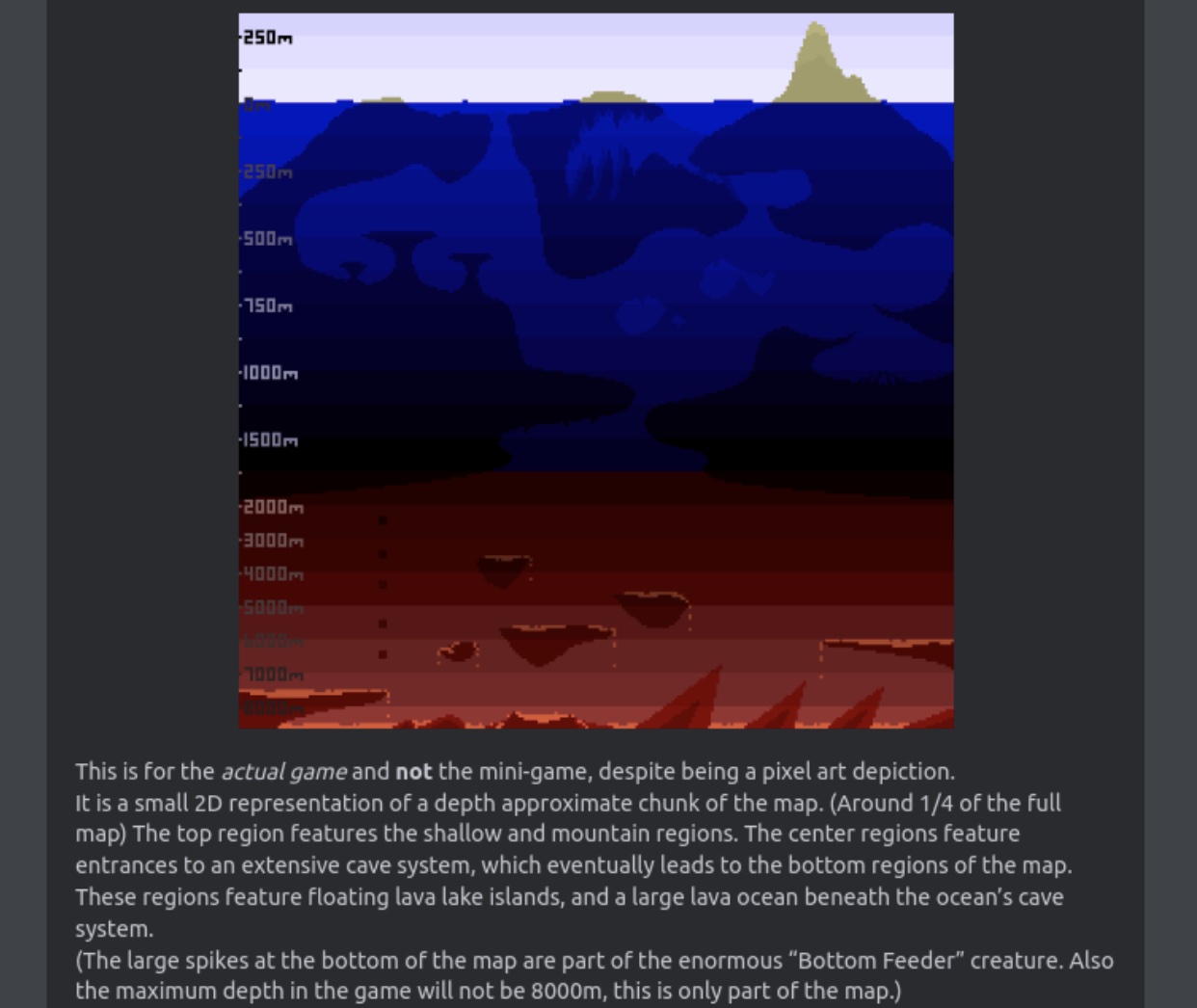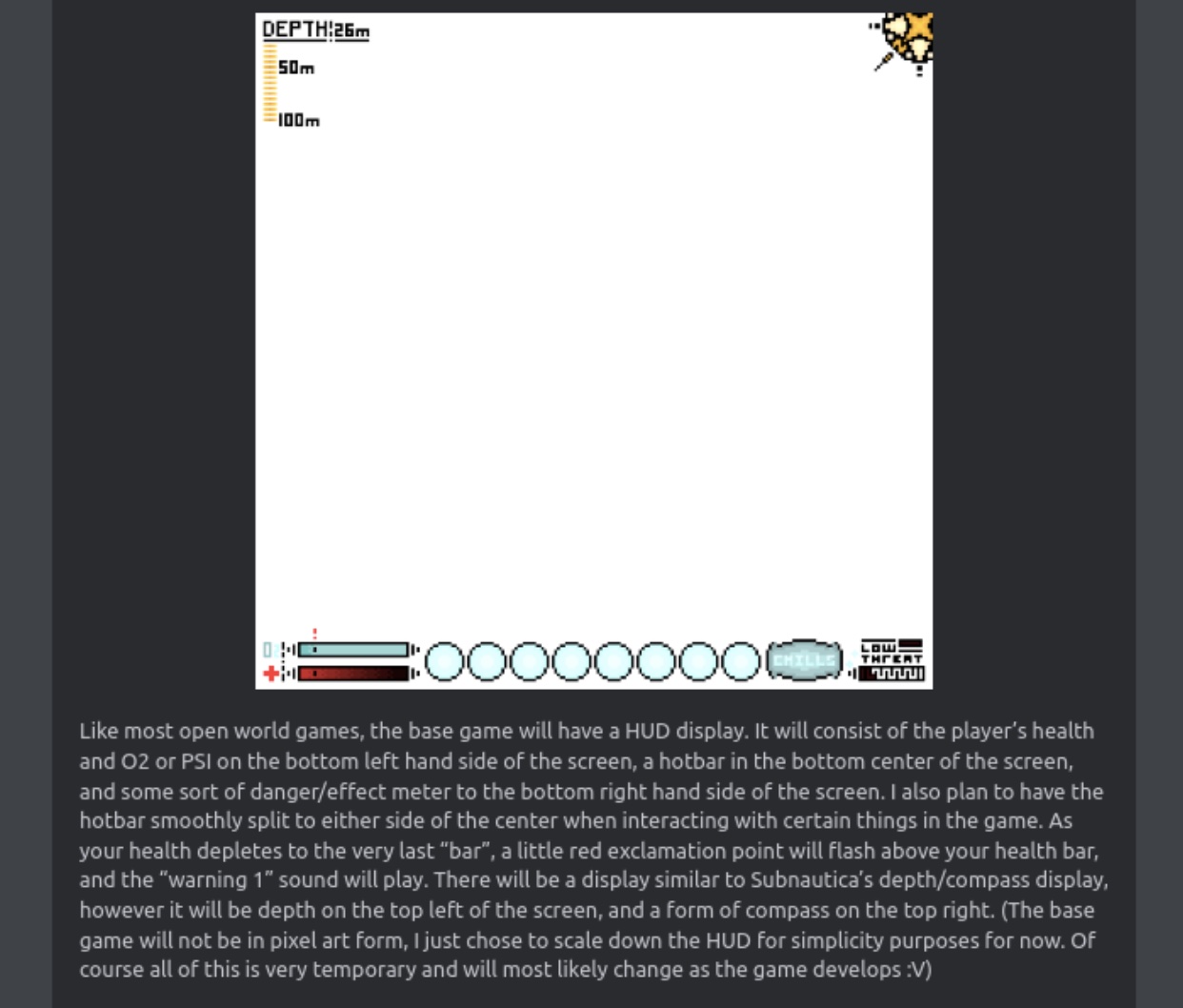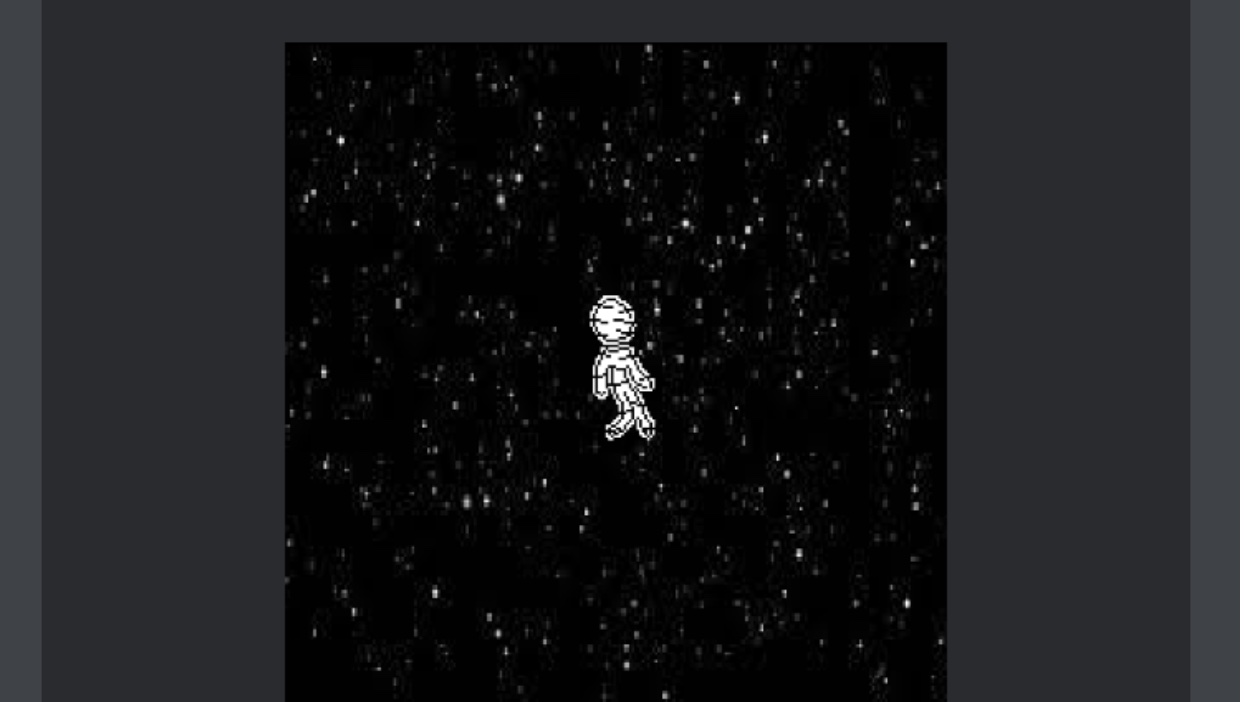Affogata enables world-leading gaming brands to collect and analyze player feedback from the open web and internal sources to turn them into actionable insights. However, this doesn’t stop us from always being surprised by the uniqueness and creativity of Indie games and developers that come up with impressive games. Having that in mind, we have decided to create a special place in our blog to share the stories of these games and their creators.
Welcome to Affogata’s Indie Spotlight series covering the hits of tomorrow, before they know they are.
Meet ‘Don’t feed the bottom’ or ‘DFTB’.
The game has been in development for 2 years now, and it has pulled heavy inspiration from several indie games throughout the development process. Subnautica is the primary inspiration for the game, as it has an open world, extraterrestrial environments, and a survival aspect to it. As described above, the game is based in the year 2213 after an explosion, where the player will research and log encounters with fauna and flora, while making incredible discoveries on the planet. They will travel further and deeper into the planet, as human curiosity pulls them forward into the abyss.
Here is what Dylan had to say about his creative process and how he collects player feedback:
How do you start the creative process of coming up with a new game?
The way I started with this game was by taking a bunch of inspiration from bigger games like Subnautica and Undertale, and then applying that inspiration by writing down as many ideas as physically possible. I think it’s always super important to take note of every single idea that you think of, no matter how insane it might be. You can also find a genre or genres for your game from those bigger games, helping to establish a good foundation.
How and from whom do you get your game design feedback?
I get my game design straight from Develteam either through the comments on posts or via private message. I am a small developer without much of a team, but feedback will always be useful. I could also try and reach out for feedback from larger audiences or companies, but for now, this is just my dream hobby, so I’ll take the feedback as it comes my way.

How do you decide which player feedback to employ in your game?
I almost always apply the feedback that someone gives me, however, this is only because I haven’t gotten anything unrealistic yet. I am sure that there will be certain things that I won’t be able to add to the game, but for now, I write concepts for every form of feedback I’m given.
Once applying feedback, do you keep asking for more comments?
I do continue to ask for more comments after I apply feedback. I feel that it helps push forward the idea miles further if I follow up on it, and sometimes I run into issues so it can be helpful to ask for more comments.
What role does player feedback take in creating indie games and what does it look like?
I personally do not have experience with player feedback, as my game is not programmed yet, however, I do understand the importance that the player has in the creation of indie games. For example, the player can essentially fix your game and clear it of all identifiable bugs or errors. Just having them play through your game, a lot of players will try to find a way to break the game in some way. This helps polish your game and save a ton of time testing it yourself. Another way they can help is by adding suggestions for features or items that should be added to the game. This can greatly increase the balance of your game and it can be the difference between a game that is stale, and a game that shines bright.

How do you approach conflicting feedback from different gamers?
Usually, if two different players have different ideas or suggestions, I can work it out by adding things that grant both of their wishes. I can find a way to implement both of their ideas, despite their differences. If I ever encounter conflicting suggestions that cannot be solved in this way, I would have to make a choice on the most realistic option. Though, even if I choose one instead of the other, I can still store the other person’s ideas in my notes where I might find a use for them later.
If you could improve the way you gather feedback, what would you do?
If I could improve my methods of finding feedback, I would definitely create a website or place for people to post their feedback, separate from comments on posts. This would help provide a stable resource for ideas when I get writer’s block or some sort of blockage.
Let us know if you would like to add anything else to the blog post and please don’t forget to send us photos of how your game looks so we can include them as well.
Subscribe to our blog to read more stories about amazing creators from passionate professionals.
